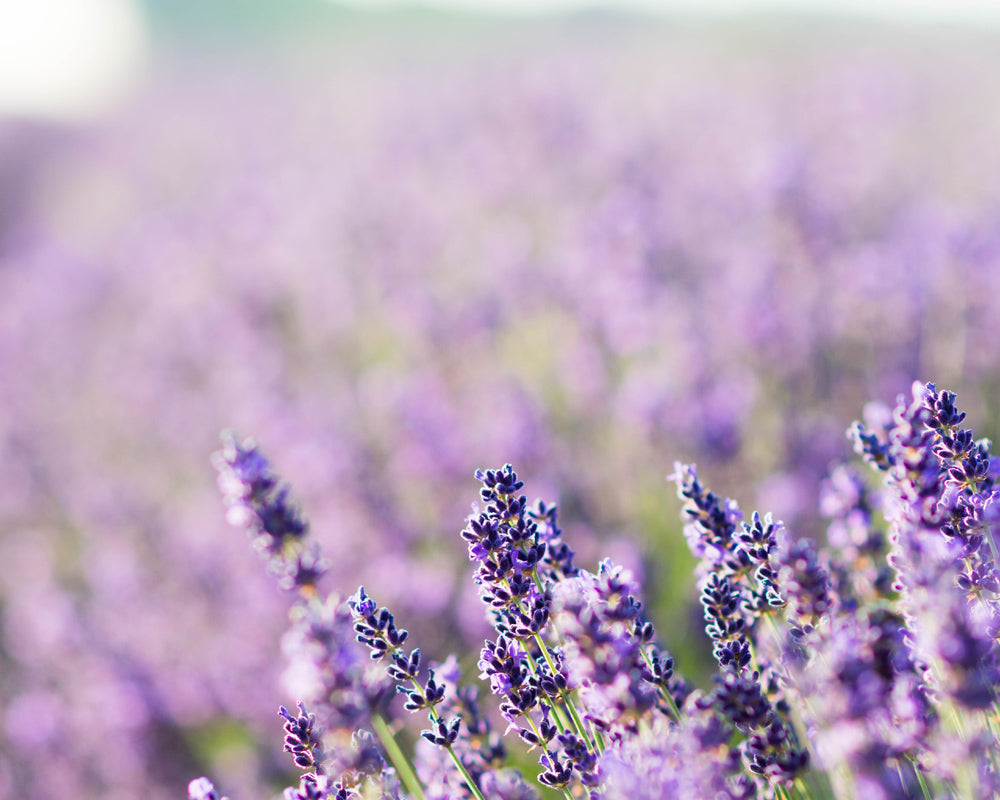In a world of buzz words “chemical free” is being used more and more. You may have seen it on packaging and even in social media posts.
What does it mean, really? And what does it mean when it comes to perfume?
Perfumes have been an integral part of human culture for centuries, enticing our senses and evoking emotions. However, as society becomes more conscious of the ingredients we use in our daily lives, the term "chemical-free perfume" has emerged.
As I started my natural living journey 10 years ago, I know that I felt overwhelmed with all of the new terms and spent a lot of time learning and studying. I would dig deeper into the scientific research, and way beyond just the headlines on things. In this area of green beauty and ‘clean’ living there has been a lot of marketing hype that has taken over, many call it ‘greenwashing’. This idea of “chemical free” is one such example to be aware of.
You can learn more about my journey to natural living here.
THE REALITY OF CHEMICALS
To understand chemical-free perfume, we must first acknowledge that everything around us, including natural substances, is composed of chemicals. Chemicals are the building blocks of matter, and they exist in various forms, both naturally occurring and man-made. Water is made up of chemicals, the air we breathe is made up of chemicals…..and YOU yourself are made up of chemicals!
It is important to differentiate between harmful synthetic chemicals and those derived from natural sources that are beneficial for our well-being and the environment.
What does the word ‘chemical’ mean and where did it come from?
The word "chemical" is derived from the noun "chemistry," which refers to the scientific study of the properties, composition, and interactions of substances. In general, the term "chemical" is used as an adjective to describe anything related to or involving chemicals.
The word "chemical" originates from the medieval Latin word "chemicus" and the earlier Arabic term "al-kīmiyā." These terms were influenced by the ancient Greek word "khēmeia" or "khēmia," which referred to the study and practice of alchemy. Alchemy encompassed various practices that aimed to transform substances.
Over time, as alchemy evolved into modern chemistry, the term "chemical" came to represent the fundamental components and processes involved in the study of matter and its transformations. Today, "chemical" is a widely used term in scientific and everyday contexts, encompassing the vast array of substances, reactions, and properties explored within the field of chemistry.
THE DILEMMA OF CHEMICAL-FREE PERFUME
Chemical-free perfume, in the strictest sense, does not exist since all perfumes contain chemicals. If you see “chemical free perfume” advertised it is actually saying it doesn’t exist, because to be chemical-free means it is made up of nothing!! The same would be true if you saw ‘natural perfumes without chemicals’. This too would mean that it is made of nothing and does not exist. Kinda funny in a way, right?!
However, what we do know now is that not all chemicals are safe, healthy or good for us. Therefore what we can strive for are natural perfumes that do not include harmful or toxic chemicals, ensuring a safer experience for both our bodies and the planet.
Originally, perfumes were always made from natural ingredients. In ancient Egypt, India and Rome, natural fragrances were abundant and highly prized. They were from 100% natural ingredients. However, as the perfume industry emerged in the 1900s and the first synthesised scents were discovered in the 1930s, the perfume you now purchase in those gorgeous bottles are made up of virtually fully synthetic chemicals. Research is now also showing us that our repeated exposure to these synthetic perfumes is causing damage to our health and the health of the planet.

TOP 5 POTENTIALLY TOXIC CHEMICALS IN PERFUMES
Phthalates: These synthetic chemicals, which are made from petroleum, are commonly used as fixatives in perfumes to make the scent last longer. Phthalates have been linked to hormone disruption and adverse effects on reproductive health.
Parabens: Often used as preservatives, parabens have been associated with endocrine disruption and are suspected to interfere with the hormonal balance in our bodies.
Synthetic Musks: These chemicals are used to create the musky fragrance in perfumes. Studies suggest that some synthetic musks can accumulate in our bodies and the environment, with potential harmful effects on human health and aquatic life.
Formaldehyde: Although not directly added to perfumes, formaldehyde can be released as a byproduct from certain preservatives. It is a known carcinogen and respiratory irritant.
Benzophenone: This chemical is used to protect perfumes from UV light damage. Benzophenone has been linked to allergies and is classified as a potential endocrine disruptor.
These are the kind of chemicals that you DON’T want in your perfumes that you are using daily on your body.
HEALTH AND SAFE CHEMICALS IN NATURAL PERFUMES
What chemicals are best in perfumes? Natural, of course. Our bodies have evolved in interactive harmony with nature and natural chemicals and thus are healthy and safe.
Essential Oils: Derived from plants, essential oils provide a wide range of natural fragrances. Anytime you hold a flower in your hand and give it a smell, you are smelling its essential oil fragrance chemical molecules. They are extracted through methods like steam distillation or cold-pressing, preserving the beneficial properties of the plants. Essential oils like lavender, rose, and bergamot offer captivating scents while promoting relaxation and emotional well-being.
Carrier Oils: Natural perfumes often incorporate carrier oils like jojoba, almond, or coconut oil, which help dilute and carry the fragrance. These oils moisturise the skin and provide additional benefits, such as nourishing and softening properties.
Floral Waters: Also known as hydrosols or flower waters, these are the byproducts of essential oil production. Floral waters, such as rose water or orange blossom water, possess delicate scents and offer soothing properties.
Natural Extracts: Extracts derived from herbs, spices, and fruits can contribute to the fragrance of natural perfumes. Examples include vanilla extract, cinnamon, or citrus oils. These extracts add depth and complexity to the scent while providing antioxidant and revitalising properties.
Natural Resins: Resins like frankincense or myrrh have been used in perfumery for centuries. They offer rich and distinct fragrances while imparting calming and grounding effects on the mind and body.
Our bodies recognise these natural chemicals because our biology has evolved with them.
You can learn more about what is a natural perfume here.
And of course you can shop the best 100% natural perfumes right here at Sensoriam.
WHAT IS A CHEMICAL IN PERFUME?
In the context of perfumes, a chemical refers to any substance or compound used in the formulation of the fragrance. These chemicals can be either naturally derived or synthetically produced. They contribute to the scent, stability, and overall characteristics of the perfume.
WHAT IS CHEMICAL VS NATURAL FRAGRANCE?
As we can now see, there is no real difference between chemical and natural fragrance, as all perfumes are made up of chemicals, by definition. However, there is a difference between perfumes made from synthetic man-made chemicals, and perfumes made from natural chemicals. At Sensoriam we only stock perfumes made from 100% natural ingredients as we believe they are best for health of self and planet.
And you can learn what is the difference between essential oils and natural perfume here.
IS THERE SUCH A THING AS NON TOXIC PERFUME?
You may have also noticed the term “non toxic” in the green beauty space.
The term "non-toxic perfume" is commonly used to describe perfumes that are formulated without potentially harmful or toxic ingredients. While it is not accurate to claim that a perfume is completely devoid of chemicals (as all substances, including natural ones, are composed of chemicals), there are perfumes available that prioritise the use of safer and more natural ingredients.
There are many synthetic and even natural chemicals that are considered toxic for humans. These are the kind of chemicals we need to avoid completely, of course. But there are also many synthetic chemicals that are considered toxic at low doses, or that have been found to have negative effects in some studies but have not officially been considered “toxic”. This is why we believe doing your own research and checks is vital.
WHAT ARE CLEAN PERFUMES?
Within the “clean” beauty and “clean perfume” industry there are what many consider to be “safe synthetics” being used. Synthetic chemicals that so far have been found to not cause long term health effects. We like to err on the side of caution as it can take up to 20 years before a substance is officially banned and coined as ‘toxic’, and in those 20 years it is still being used. This is why all of our perfumes in our collection must be 100% natural, so we can have peace of mind.
Non-toxic perfumes typically focus on utilising natural fragrance ingredients derived from botanical sources, such as essential oils, absolutes, and natural isolates. These ingredients are obtained from plants through processes like steam distillation or cold-pressing, and they offer a wide range of aromatic profiles.
By formulating perfumes with a conscious selection of ingredients, non-toxic perfume brands aim to provide a safer and more environmentally friendly alternative. However, it's important to note that individual sensitivities can vary, and what is considered non-toxic or safe for most people may still cause reactions or allergies in some individuals. Always work with a professional medical practitioner to check with your own circumstances.
If you're interested in non-toxic perfumes, it's advisable to look for brands that emphasise transparency in their ingredient lists, prioritise natural and responsibly sourced materials, and adhere to regulatory guidelines and safety standards. Additionally, conducting patch tests on a small area of skin before applying a new perfume can help identify any potential sensitivities or adverse reactions.
Be careful of terms like “fragrance oils” as they may or may not be natural. Learn more here.
Start your Natural Perfume journey with our Scent Quiz to help you find your favourite scent category.

So is chemical free perfume possible?
While the idea of chemical-free perfume is a misnomer, it is essential to be aware of the distinction between harmful synthetic chemicals and the beneficial ones derived from natural sources. Opting for natural perfumes without harmful chemicals allows us to enjoy captivating scents while safeguarding our well-being and the environment. By understanding the potential dangers of certain chemicals in perfumes and embracing the beauty of nature's aromatic offerings, we can make informed choices and promote a healthier and more sustainable fragrance experience.
To awakening your senses, naturally.
